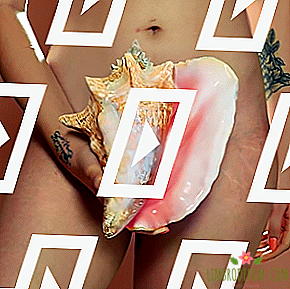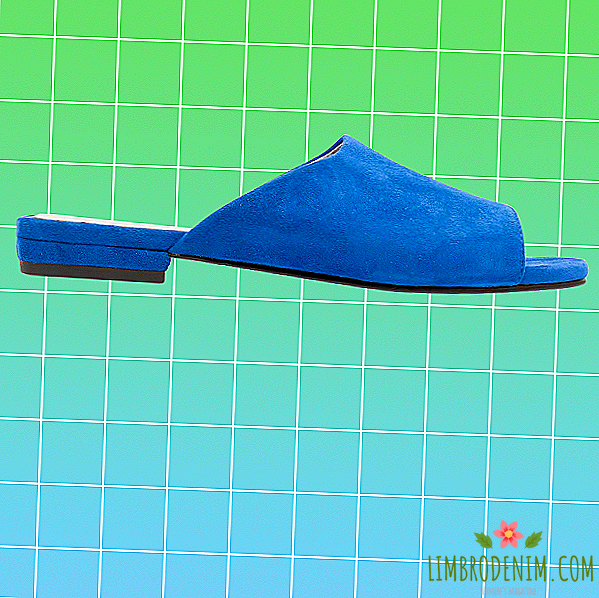Rokitansky-Kyustner syndrome: I was born without a uterus
Complex construction "Rokitansky-Kyustner-Meier-Hauser syndrome" (MRKH) refers to a situation in which a woman is born with absent or insufficiently developed genital organs. Variants of the disease can be different: often with MRKH there is no uterus, and the vagina is shortened, although the vulva looks as usual; it happens that the syndrome affects the kidneys. In any case, women who are faced with a diagnosis, there is no menstruation. A woman cannot take out a pregnancy on her own, but she can become the genetic mother of a child who is put up by a surrogate mother. The exact causes of the anomaly are unknown, and the syndrome itself occurs in about 1 in 4,500 women. We talked to one of them: Anna told about life without menstruation and how the syndrome affected her sense of self.
Interview: Irina Kuzmicheva

Nedozhenshchina
The beginning of menstruation is a kind of initiation rite for many girls. At eleven, I watched the movie “Animal called Man” and began to wait for “that very” day - after fourteen, however, I became worried: all my classmates had monthly periods except me. In the “book for girls” I read that if the menstruation does not come until seventeen years old, this is normal - but I was still worried and constantly asked my mother about her experience. Mom tried to avoid such conversations, so I turned to my girlfriends: at first they were willing to tell, but after a couple of years they avoided me, some even scoffed. It was a difficult period: quarrels with parents, bullying at school, mood swings and thoughts that “something was wrong” with me.
When I was fifteen, my anxiety was passed on to my mother and we went to a gynecologist. The doctor examined me and said that there was nothing terrible - all that was needed was to do an ultrasound and drink the pills. However, on the very first ultrasound, it turned out that I simply did not have a uterus. I was sent for additional examinations, I donated blood to study the karyotype - this is how they check if a person has genetic abnormalities. It turned out that I have a genetic disorder that can develop in the fetus at about the third month of the mother’s pregnancy - during this period the genitals are formed. Before birth it is impossible to identify.
Mom refused to give money for the operation to increase the vagina, explaining that in the hospital I would be considered a prostitute. She forbade telling about the diagnosis
I passed, it seems, another million ultrasounds. When I was sixteen, at one of them, the director of the genetic center, the light of science, saw a small womb, but for accuracy I was sent for diagnostic laparoscopy. The operation is performed under general anesthesia, two incisions are made: under the navel and near the pelvic bone; special tubes with cameras are inserted into the cuts and look inside. On the second day after the procedure, I was sitting in the doctor's office, there were no close people around, and an elderly, tired professor showed on the screen the results, monotonously describing what he saw. Laparoscopy confirmed that I still do not have a womb - the luminary of science just seemed.
So I learned for sure: my fallopian tubes go into the abdominal cavity, the vagina is shortened - it can be surgically increased to a standard length, an average of ten centimeters. At the same time I have ovaries and they function as it should. I was diagnosed with Rokitansky-Kyustner syndrome. The longer name (Rokitansky - Kyustner - Meier - Hauser) implies that the syndrome may manifest itself in different ways: besides the uterus, for example, there may be no vagina at all, or there may be a uterus without passage into the vagina.
All these details were explained to me again later. Then, from the words of the professor, I remembered only one thing: I have no womb and I can never get pregnant. The stitches on my stomach hurt, despair covered with a wave - it seemed to me that I was “non-married”.
"Let's talk at home"
The next day, the doctors reported my mother's diagnosis. She said only: “We'll talk at home,” and left, leaving me for a few more days in the hospital to digest the information. Neighbors in the ward claimed that I was "lucky": I do not recognize the pain during menstruation, I will not have uterine fibroids, painful childbirth and other troubles, I can have sex as much as I like without becoming pregnant. Subsequently, I repeatedly heard this, while catching on myself sympathetic views. For a long time I comforted myself with such "pluses", but I did not completely accept the fact that I would not experience some of these things.
Mom refused to give money for the operation to increase the vagina, explaining that in the hospital I would be considered a prostitute. She forbade anyone to talk about the diagnosis - because of this, he began to seem something shameful and difficult. We hardly discussed it anymore, especially with my father. I told my friends all the same, but the response like “you poor thing” only made me angry. And my boyfriend was even glad that we would finally be able to have sex and I definitely would not get pregnant - such things seem cool to teenagers.
For a long time I was lost when I discussed monthly or PMS. She was afraid that someone would guess and shout "You are not a real woman!" or "open" me due to the fact that I can not share a pad or a tampon with my friends. Over time, I learned to get out of such situations: I read a lot about menstruation, tried to pretend to be "normal." I convinced myself that I didn’t fully belong to the world of women because of this particularity. I was thrown from one extreme to another: from the complete rejection of the notorious "femininity" to the exaggeration of emphasizing it with high heels and mini-skirts. I didn't value myself, got involved in a toxic relationship. I think if the family supported me, and would not make me ashamed, everything would have turned out differently.

Gynecologists
In everyday life, the Rokitansky-Kyustner syndrome does not make itself felt. I have no menstruation, but the follicles mature, so there is still a semblance of the menstrual cycle - simply without bleeding and pronounced PMS. It is difficult to keep track of the cycle, because it is irregular, but once a month I have swelling and breast enlargement. I never gave detailed hormone tests - the doctors said that since I was not worried about anything, I didn’t have to do anything specifically - but those that I did were normal. At the same time, there is not enough information, even on the Internet - I have never met a specialist who understands this syndrome.
Visiting gynecologists is a separate problem. During the first examinations, a medical consultation was held around me, students were brought. It was awful, I felt like a monkey in a zoo. Mother rarely went with me, so almost all I was experiencing alone. One doctor, having learned about the diagnosis, examined me for a long time in the gynecological chair, asked about the sensations and was surprised, saying that he had never seen anything like this. Another one, during the examination, searched so hard for the cervix using a gynecological mirror, that I screamed in pain. She also prescribed a set of tests for me, among which there was an analysis for cervical cancer, which I, of course, cannot have - but I learned this only after they took it and I paid for it.
During the first examinations, a medical consultation was held around me, students were brought. It was awful, I felt like a monkey at the zoo
Once I found a Russian-speaking forum for women with such a diagnosis - it became easier for me because I'm not alone. I was impressed by the post of one woman: she is forty-seven years old, she is married for the third time, she has no children, lives for her own pleasure, travels and does not regret anything. I myself dream of creating a closed support group for women with Rokitansky-Kyustner syndrome, so that together we can find strength not to be ashamed of being different from others.
Without shame
The men I met and talked about the syndrome reacted calmly. Some were happy to have sex at any time and without a condom: we were young, we were not talking about children. Since then, of course, I learned more about the importance of barrier contraception and STIs. Problems with penetrating sex was also not. I realized that there was no need for surgery, only gynecologists complained about the length of the vagina. I read that with such a diagnosis it can be one and a half centimeters, and mine is about seven. I confessed to my future husband almost immediately. He took the news calmly, just asked a couple of clarifying questions. He, like me, did not dream of children. Previously, I answered the questions of relatives: "This is not your business" or "I do not want children." But they don’t come up to me anymore - tactful people surround me now.
Last year, my husband and I came to a psychotherapist - it was important for us to find out if we wanted children. Therapy helped to realize and accept that I am a woman, regardless of whether I have a menstruation. True, shame penetrated deeply, so I continue to work with him. It became a discovery for my husband that I was worrying everything: it seemed to him, like many people, that I was easily concerned with the diagnosis because I tried not to discuss this topic. Although there were different situations. For example, one day my close friend reported that she was pregnant. I congratulated her and started sobbing frantically. My husband and I were driving in a car, and he didn’t understand what had happened - and I was torn from pain because I could never say “I am pregnant” to him, I can never feel life inside of me. That day I cried till the evening.
I'm thirty-one now, and I don't know if I want children. I have a financial and medical opportunity to become a mother, but I do not hurry. Maybe I'll freeze the embryos from my eggs in case I change my mind. Uterus transplantation was performed successfully only once in Germany, so my version is surrogate motherhood. I didn’t think about adoption, because I’m still not quite sure whether I’m ready for children — I just want to understand what the options are.
PHOTO: LIGHTFIELD STUDIOS - stock.adobe.com (1, 2)




